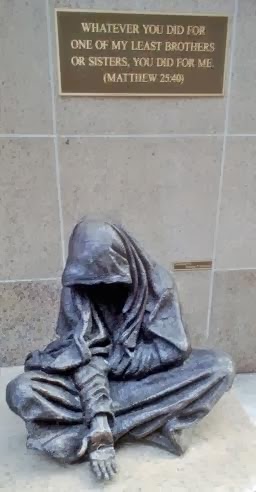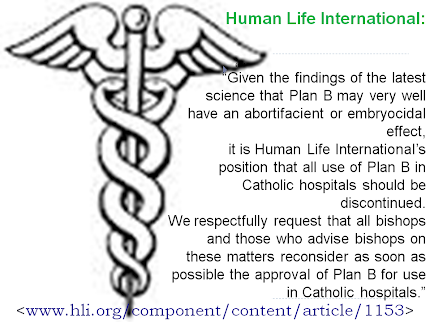Excerpts from Pope Benedict XVI's letter to the Superior General, re: the 35th General Congregation of the Jesuits
"This is a providential occasion for impressingupon the Society of Jesus that renewed ascetic and apostolic impulse which is wished by all, so that Jesuits might fulfill completely their mission and confront thec hallenges of the modern world with that faith to Christ and to the Church which distinguished the prophetic action of Saint Ignatius of Loyola and his firstcompanions....
"I would like todirect my thoughts of gratitude in the first place to you, dear and venerated FatherSuperior General, who since 1983 has guided the Society of Jesus in anenlightened, wise, and prudent manner, seeking in every way to maintain it in thechannel of its founding charism. For objective reasons, you have at various times asked to be relieved of so heavy a post, assumed with a great sense of responsibilityat a moment in your Order’s history which was not easy....
"I heartily hope that the present Congregation affirms with clarity the authentic charism of the Founderso as to encourage all Jesuits to promote true and healthy Catholic doctrine....
"it could prove extremely useful that the General Congregation reaffirm, in the spirit of SaintIgnatius, its own total adhesion to Catholic doctrine, in particular on those neuralgic points which today are strongly attacked by secular culture, as for example the relationship between Christ and religions; some aspects of the theologyof liberation; and various points of sexual morality, especially as regards the indissolubility of marriage and the pastoral care of homosexual persons"
Excerpts from Franc Cardinal Rode's 1/7/08 Address to 35th General Congregation of the Jesuits
"This is the second time in the history of the Society wherein a General Congregation gathers to elect a new Superior General while his predecessor is still living....
"I join you in your prayer that the Holy Spirit, the father of the poor, giver of graces, and light for hearts will assist you in your discernment and your election.
"This Congregation also gathers together to treat important and very difficult matters which touch all members of the Society, such as the direction which the Society is presently taking....
"....It is not only for your own Jesuit brothers that you provide a religious and apostolic formation. There are many institutes of Consecrated Life who, following an Ignatian spirituality, pay attention to your choices; there are many future priests in your Colleges and Universities who are preparing for their ministry. There are many peoples from both within and outside the Church who frequent your centers of learning seeking a response to the challenges which science, technology and globalization pose to humanity, to the Church, and to the faith, with the hope of receiving a formation which will make it possible for them to construct a world of truth and freedom, of justice and peace....
"As a brother who is following your works with great interest and expectation, I want to share with you 'the joys and hopes' (GS. 1) as well as 'the sorrows and anguish' (GS. 1) which I have as a man of the Church called to exercise a difficult service in the field of Consecrated Life, in my role as Prefect of the Congregation for Institutes of Consecrated Life and Societies of Apostolic Life....
"....Consecration to service to Christ cannot be separated from consecration to service to the Church. Ignatius and his first companions considered it thus when they wrote the Formula of your Institute in which the essence of your charism is spelled out: 'To serve the Lord and his Spouse the Church under the Roman Pontiff' (Julio III, Formula I). It is with sorrow and anxiety that I see that the sentire cum ecclesia of which your founder frequently spoke is diminishing even in some members of religious families. The Church is waiting for a light from you to restore the sensus Ecclesiae. The Spiritual Exercises of St Ignatius are your specialty. The rules of sentire cum Ecclesiae form an integral and essential part of this masterpiece of Catholic spirituality. They form, as it were, a golden clasp which holds the book of The Spiritual Exercises closed....
"With sadness and anxiety I also see a growing distancing from the Hierarchy. The Ignatian spirituality of apostolic service 'under the Roman Pontiff' does not allow for this separation....The fundamental nucleus of Ignatian spirituality consists in uniting the love for God with love for the hierarchical Church....
"Times have changed and the Church must today confront new and urgent necessities, I will mention one, which in my judgment is urgent today and is at the same time complex and I propose it for your consideration. It is the need to present to the faithful and to the world the authentic truth revealed in Scripture and Tradition. The doctrinal diversity of those who at all levels, by vocation and mission are called to announce the Kingdom of truth and love, disorients the faithful and leads to a relativism without limits. There is one truth, even though it can always be more deeply known.
"It is the 'living teaching office of the Church, whose authority is exercised in the name of Jesus Christ' (DV 10) which is the voucher for revealed truth....
"The feeling of ever growing separation between faith and culture, a separation which constitutes a great impediment for Evangelization (Sapientia Cristiana, proemio) also worries me.
"A culture immersed with a true Christian spirit is an instrument which fosters the spreading of the Gospel, faith in God the Creator of the heavens and of the earth. The Tradition of the Society, from the first beginnings of the Collegio Romano always placed itself at the crossroads between Church and society, between faith and culture, between religion and secularism. Recover these avant-garde positions which are so necessary to transmit the eternal truth to today’s world, in today’s language....It is not possible to transform the world, or to respond to the challenges of a world which has forgotten love, without being firmly rooted in love....
"I join with you in prayer to the Father through the Son and in the Holy Spirit together with Mary, Mother of Divine Grace, invoked by all the members of the Society as Santa Maria della Strada, that he may grant you the grace of 'seeking and discovering the will of God for the Society of today which will build the Society of tomorrow'."



























